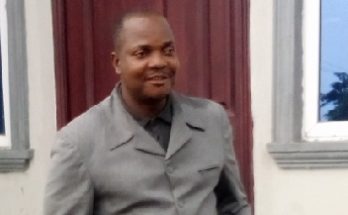The Federal High Court in Abuja has dismissed a suit filed by Mr Ugochukwu Uchenwa, a member of the Seventh-day Adventist Church.
In the suit, Uchenwa sought to stop the conduct of elections and examinations on Saturdays.
But while delivering judgment on Wednesday, the presiding judge, James Omotosho, described the suit as frivolous, vexatious, irritating and baseless.
Uchenwa, an elder of the church, had told the court in his suit that Saturday was a Sabbath day of worship and fixing examinations and elections on the day was a violation of his and other church members fundamental rights.
The plaintiff prayed the court to make an order prohibiting the federal government from further conducting elections and examinations on Saturdays and stop disruption of their right to worship.
Omotosho in his judgment, held further that the fundamental rights being claimed by the plaintiff were not at large and could be curtailed by a government policy.
The judge further held that the Seventh-day Adventist Church was in the minority in Nigeria and its doctrine could not be imposed on the majority of other religious denominations in the country.
Shortly after the judgment, counsel to the plaintiff, Mr Benjamin Ahaemefule said that his client was heading to the Court of Appeal to further test the law.
Ahaemefule said that although his client had victory in some aspects of the suit, they lost in the main suit hence the need to approach the appellate court.
“The court agreed with us that it has jurisdiction to hear our matter.
“The court also agreed with us that elder Uchenwa has the locus standi to institute the action for the enforcement of his fundamental rights and those of the entire members of the Seventh-day Adventist church Nigeria.
“The court agreed with us that the rights of the adventists are breached.”
“The court, however, refused to enforce our right, saying that adventists are minority and not in majority.
“The court held that although our rights are infringed upon, the infringement is legally necessary and justifiable.
“So the court refused to grant our substantive request because it said that granting it will open a flood gate of litigation by other citizens of Nigeria who will come out to enforce their own rights.”
The lawyer held that the court erred in law when it said that although the Adventists had a cause of action and their rights had been infringed upon, such infringement was justified.
“The court erred in law, when it held that although the adventists have cause of action but that right can not be enforced because the adventists are in the minority,” the lawyer said.




